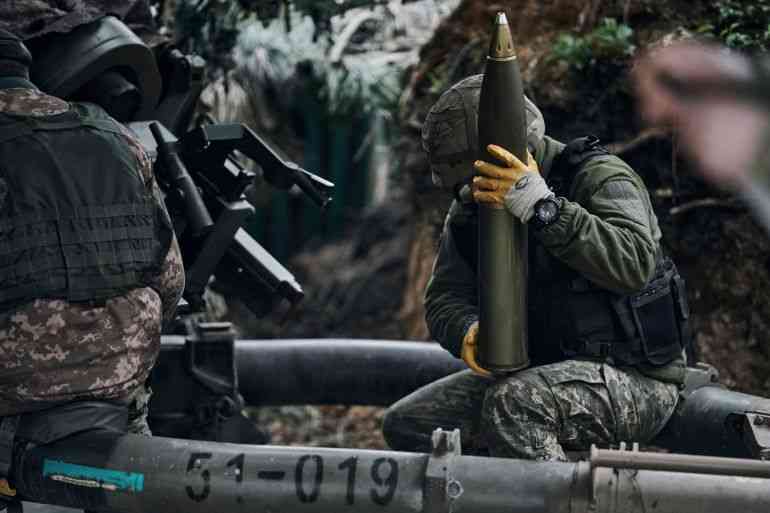
THE International Day of Peace was observed just over a month ago. Every year on September 21, the international community observes this day to raise awareness on the need to reinforce the principles of peace. This year’s theme was Actions for Peace: Our Ambition for the Global Goals.
It urged action which acknowledged both individual and collective responsibility to foster peace.
Why talk about a day which happened a month ago? The day came and went, just like any other event, without the world taking stock of itself and realising that now more than ever, peace is what the world needs. There are currently several dozens of wars occurring all over the world, including six major conflicts with a death toll of 10 000 or more per year, 15 conflicts with a death toll of 1 000 or more, and 21 conflicts with a death toll of fewer than a thousand.
Additionally, there are currently more than a dozen small-scale conflicts contributing to political unrest and human suffering. This is just mere numerical data. In the last 10 years, State-based conflict has increased alarmingly across the world, with more than 50 occurring annually for the past eight years. The most recent data on non-State war indicates that there were 82 non-State conflicts in 2022, up from 76 in 2021, with Africa having the highest number of non-State hostilities.
The wars in Sudan, Ukraine, Ethiopia and now Israel-Palestine are not only increasing human suffering in the affected countries, but also having an impact on global economies and influencing the prioritisation of State resources and investment resources. The rest has been attributed to the Islamic State’s expansion across Africa, Asia and the Middle East. In 2022, Islamic State actors took part in wars in 15 different nations.
Even more concerning is the fact that countries which used to serve as arbitrators and take the initiative in peace talks have now become major players in the current major wars. Most of the countries which previously presided over negotiations and peace discussions are now siding with warring nations, jeopardising their neutrality and creating a big void in the peace arena.
A fragmented geo-political environment, competition, the influence of emerging economies and the gradual shift towards a multipolar system, according to some analysts, are making superpowers anxious. As a result, they are being forced to reassess their position in the global political and economic arena and try to reclaim their dominance via wars. Wars are harmful no matter how one approaches them.
However, as more superpowers enter “the war dance floor”, instability increases, thus opening power vacuums for non-State armed groups raising the possibility of both intra- and inter-State conflict. For instance, given that they are now also compromised, the US is increasingly lacking the moral authority to order non-state actor to account.
- Africa is paying dearly for the Russian/Ukraine conflict
- Power cuts: Zesa sleeping on duty
- ‘School of funeral assurers a priority’
- What if nations fail on climate change adaptation?
Keep Reading
Because of the gradually weakening centre of power, in 2020 only 21 peace agreements were signed or declared globally, the lowest since the end of the Cold War and yet the number of major wars is rising. That tells us that maybe the peace agenda was abandoned a decade ago and perhaps that calls for a new global arrangement to foster global peace.
Ukraine
Major economies which decide to go to war often create war economies — a system of creating, organising and distributing resources to keep up the violence — by implementing contingencies that mobilise their economies for war production. Although the war in Ukraine has not yet forced the world’s largest economies into that situation, there has been a discernible shift in the priorities of the countries backing Ukraine.
Since the beginning of the conflict in Ukraine, funding for development initiatives and humanitarian relief have drastically decreased, while funding for military and security assistance has significantly increased. This does not take into account the toll the war has taken on the world economy or the misery it has brought about globally.
The situation for the impoverished, some of whom are war victims, is getting worse as superpowers continue to vie for dominance. Some will be forced to leave their homes in search of peace and better living conditions as poverty and suffering worsen, while others will either be conscripted or voluntarily join the army. The remainder, primarily those whose relevance to the war economies is less significant, will be ignored on the sidelines.
Poor governments will also confront the unavoidable difficulty of having to take a stand when there is no better option. The Israel-Palestine conflict adds a new twist just when they believed that siding with Russia was the best option. All of this is difficult to understand, especially when we consider the religious component and the human cost of the conflict. This complex world demands maturity above conceit and dominance, whose pursuit is destroying our planet.
- Tapiwa Gomo is a development consultant based in Pretoria, South Africa. He writes here in his personal capacity.










